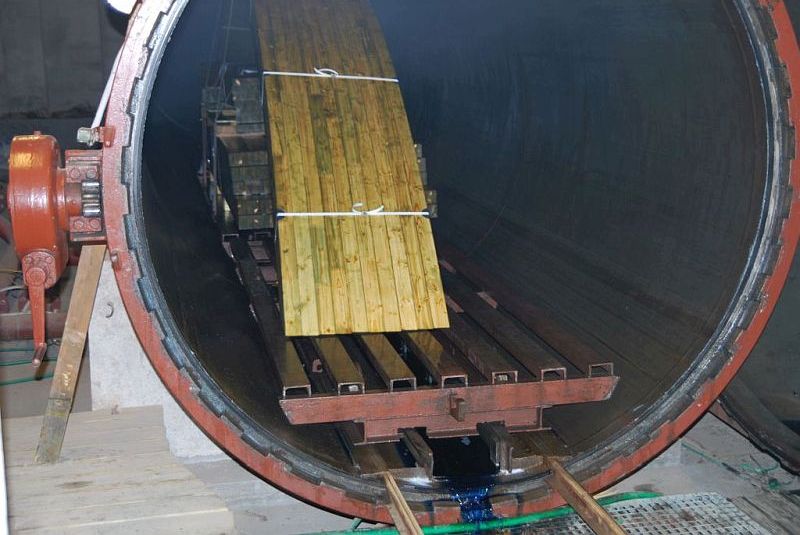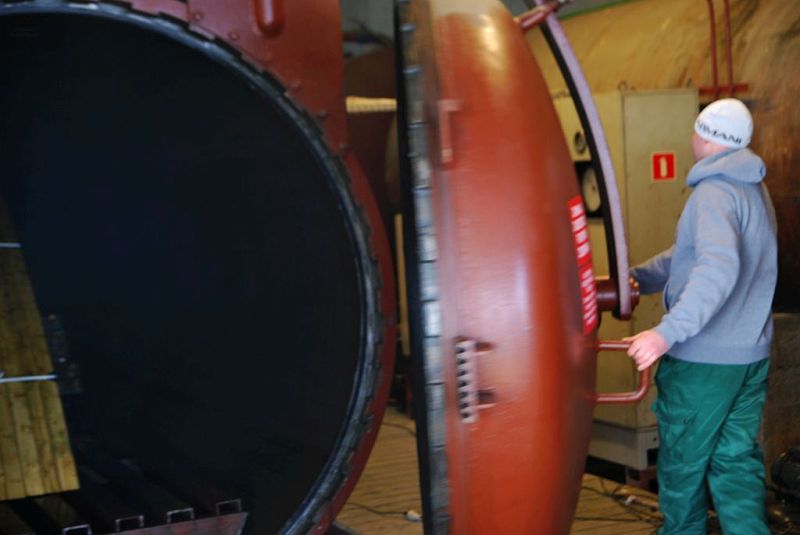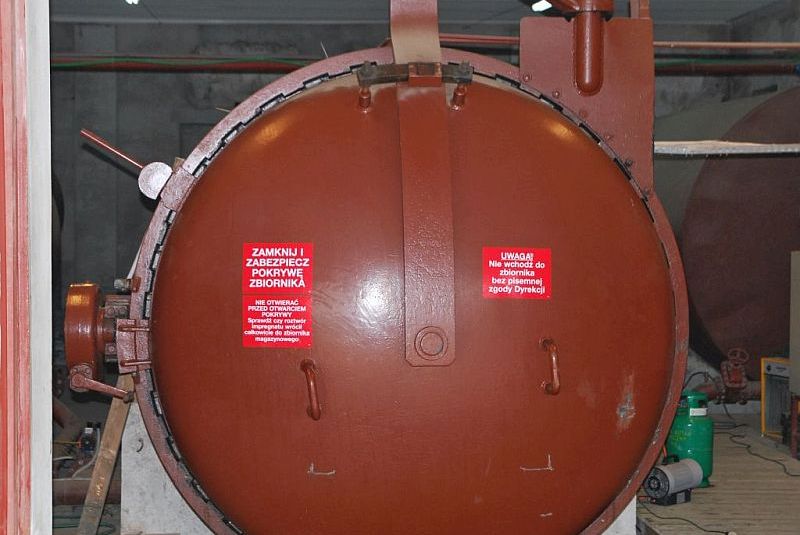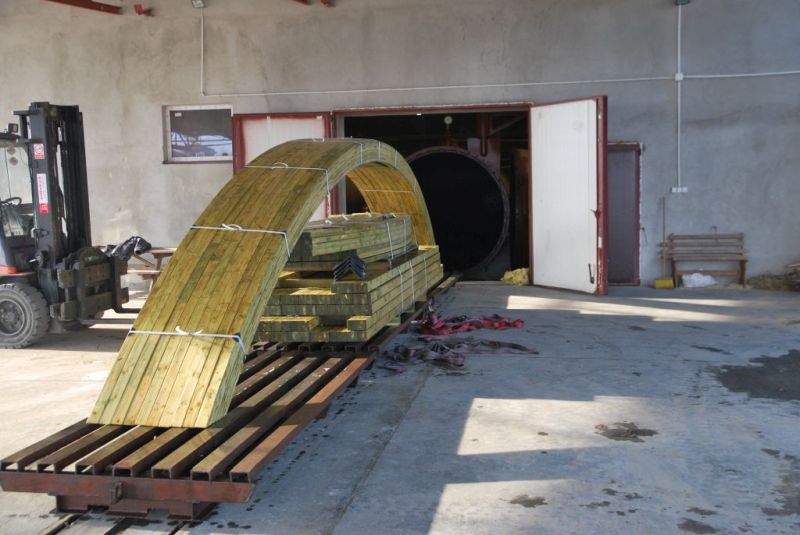How does Jagram SA protect wood – Advanced Pressure Impregnation
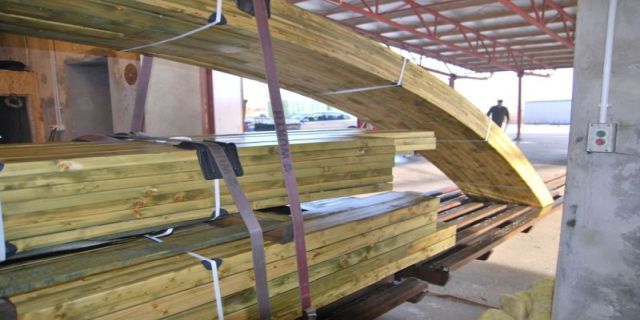
Eco-friendly formulas
Wood impregnation means saturating the material with fungicides and insecticides. At Jagram SA, the focus is on environmentally friendly solutions – harmful substances like cyanide have been replaced with copper-based water solutions, making the products much safer for nature. The greenish hue of impregnated wood comes from the copper content.
Why pressure impregnation?
Unlike the common dipping method, which only protects the surface, Jagram SA uses pressure impregnation – a process that allows protective agents to penetrate deep into the wood’s structure, ensuring long-lasting durability.
The impregnation process – step by step
The pressure impregnation process takes place in an autoclave and includes three main stages:
Initial vacuum – air is removed from the wood’s pores to allow deep, bubble-free penetration.
Pressurized saturation – the solution is forced into the wood under 6–8 atmospheres of pressure.
Final vacuum – any excess solution is removed from the surface.
Thanks to modern impregnating agents, the fixation (hardening) of the solution occurs almost instantly upon exposure to air – no extra waiting time is needed.
Environmental safety
Even though the impregnating agents used are eco-friendly, we have taken additional precautions. Under the storage tanks, a leak containment basin is installed. This specially sealed structure ensures that, in the event of a leak, no chemicals escape into the soil – meeting strict environmental standards.
With deep pressure impregnation and strong ecological awareness, wood from Jagram SA combines durability with responsibility. It’s a smart choice for anyone who values long-term quality and sustainable practices.
